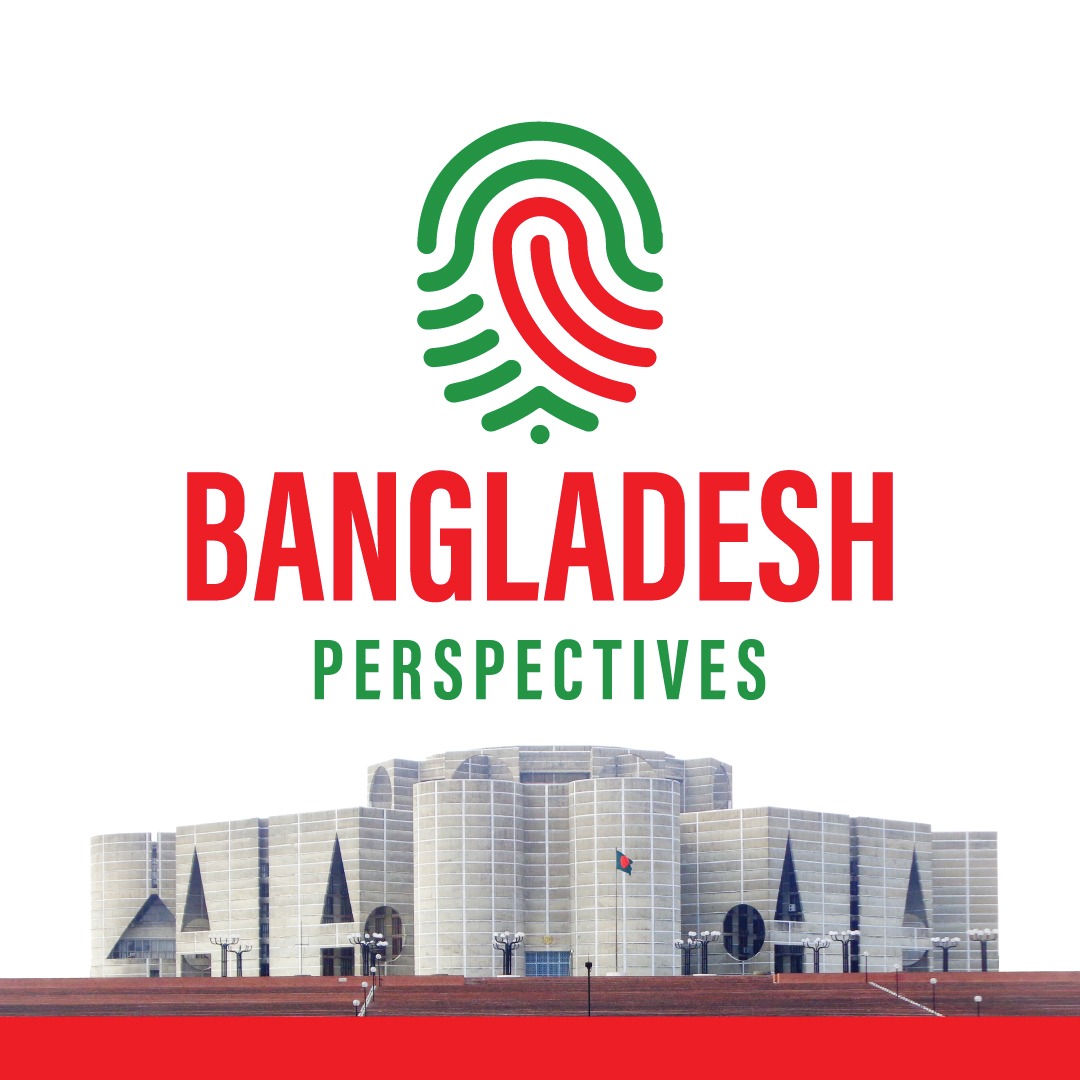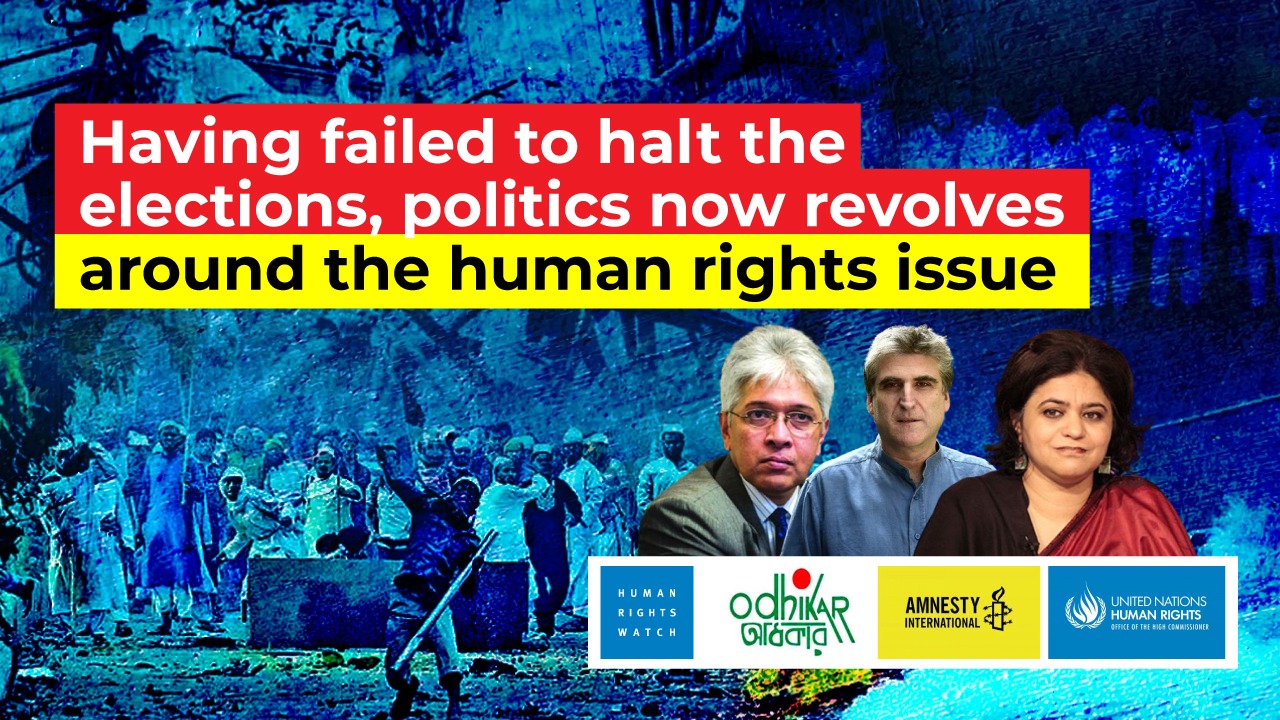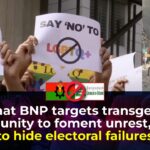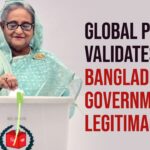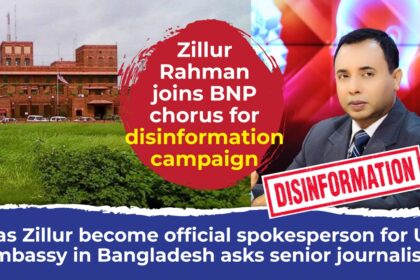Different international organizations frequently wield the discourse of human rights as a strategic instrument to exert political pressure on developing nations such as Bangladesh. In addition to these international entities, several domestic organizations within the country also engage in such endeavors, ostensibly mandated to address human rights impartially, yet deviating markedly from this ideal in practice.
Opposition leader Begum Khaleda Zia orchestrated the most shameful incident of politics on the issue of human rights in Bangladesh. During the years 2013-14, she vociferously alleged that law enforcement agencies and members of the Awami League were responsible for the deaths of 242 leaders and activists affiliated with the BNP-led coalition across 34 districts of the nation. However, her assertions faltered under scrutiny, as she could provide scant substantiation for her claims, managing to name only a handful of five purported ‘victims.’ The party, in an attempt to bolster her allegations, compiled a list of 152 individuals, yet further investigation revealed that a mere 17 individuals from this list remained unaccounted for. Furthermore, no concrete evidence implicating the ruling party directly in these disappearances has been unearthed. This comprehensive report was the culmination of protracted investigations spanning every district and upazila throughout the country for a long time.
Large-scale political propaganda about human rights ensued after the incumbent Awami League government assumed power in 2008. Subsequently, an entity known as Odhikar propagated misinformation surrounding Hefazat-e Islam’s rally on May 5-6, 2013, at Shapla Chattar in Motijheel. Initially, Odhikar disseminated unsubstantiated claims, asserting that thousands perished during the rally. Later, they purportedly compiled a list of 61 individuals, contending that all of them fell victim to members of law enforcement. However, Odhikar failed to furnish comprehensive details regarding the individuals on this list. Rather, their mistake badly tarnished the image of Bangladesh in the international arena, prompting judicial intervention resulting in the prosecution of the organization’s top brasses.
Yet, they did not stop but placed misinformation about disappearances and extrajudicial killings in Bangladesh through the United Nations Working Group on Disappearances. The compilation of the list purportedly relied on information provided by certain human rights organizations within Bangladesh, eliciting strong rebuke from activists both domestically and internationally. Critics argued that the inaccurate reporting of disappearances and homicides not only undermines the credibility of human rights entities but also obstructs the path to justice for families grappling with the loss of their loved ones. Furthermore, the report erroneously included the names of Indian nationals and members of separatist factions within the country as missing persons, drawing flak from the UN working group.
The International organization Human Rights Watch (HRW) has levied significant criticism against the current administration of Bangladesh. Particularly notable was their stance during the trials for war criminals, where the organization appeared to advocate on behalf of leaders affiliated with Jamaat-e-Islam who were implicated in atrocities such as murder, disappearances, looting, rape, and arson during the 1971 war. At that time, the organization came under criticism for questioning the judicial system of Bangladesh. Since then, HRW has been reliant on information provided by organizations like Odhikar, effectively positioning itself as a mouthpiece for the BNP-Jamaat alliance on matters about human rights within Bangladesh. Consequently, HRW’s reliance on unverified data from BNP sources has raised concerns about the accuracy of their reports. For instance, HRW’s assertion in a report claiming the arrest of over 10,000 activists lacks substantiation, as the total prison population in Bangladesh from August to December 2023 fails to support such a claim, rendering it baseless and irrelevant. Notably, there was no mention of the various steps taken by the government to defend the human rights issues.
Sara Hossain, the daughter of Dr. Kamal Hossain, serves as the Executive Director of Bangladesh Legal Aid and Services Trust (BLAST) and holds a position on the Executive Committee of Ain o Salish Kendra (ASK). Dr. Kamal Hossain spearheaded the anti-government alliance alongside the Bangladesh Nationalist Party (BNP) during the 2018 parliamentary election, forming a coalition with various opposition factions. Similarly, Sara Hossain’s spouse, David Bergman, has garnered attention for disseminating purportedly fabricated information concerning Bangladesh over the past half-decade. Among his contentious assertions during the COVID-19 pandemic was a prediction of mass fatalities owing to alleged mismanagement within the healthcare sector. Additionally, Bergman also took a stand for war criminals and fueled controversy by questioning the number of 300,000 martyrs in the 1971 Liberation War of Bangladesh. Advocate ZI Khan Panna, serving as the chairperson of the Center for Ain o Salish Kendra (ASK), labeled the 12th Parliamentary Election as ‘one-party’ and ‘one-sided,’ asserting that apart from the BNP and its affiliates, the participation of other political entities like Jatiya Party held minimal significance.
Article 19 – an international human rights body based in the UK…
In essence, human rights bodies are expected to contribute to the advancement of the overall human rights landscape within a country. However, many individuals engaged in human rights advocacy, particularly concerning minority rights, perceive a troubling trend: certain organizations and organizers ostensibly dedicated to human rights in Bangladesh face international scrutiny as the vested groups, concealing their political affiliations, are proactively trying to implement their own agenda with foreign funds and thus confusing ordinary people. Authentic human rights defenders contend that the primary focus should remain on championing the rights of ordinary citizens. Any deviation towards an alternative or personal political agenda risks impeding the realization of fundamental rights and undermines the integrity of the human rights movement.
